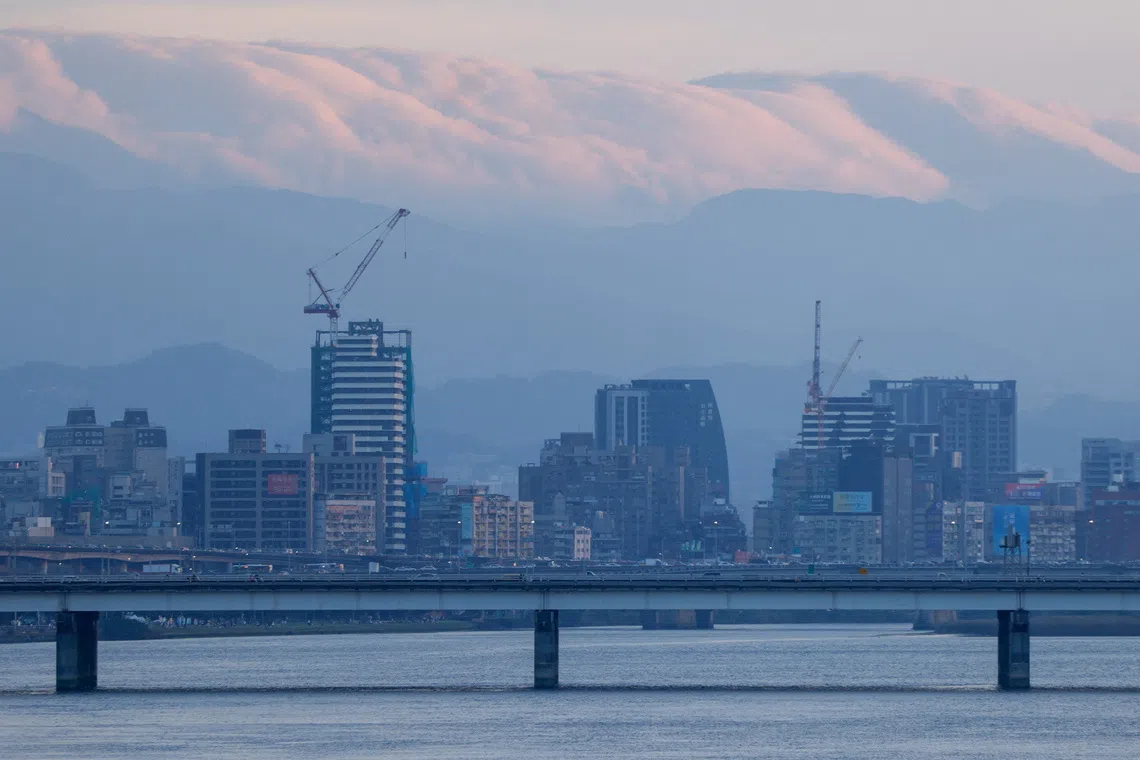Taiwan Premier Rejects 'Return to China' Amid Xi's Sovereignty Claims to Trump
 Taiwan
Geopolitics
Taiwan
Geopolitics

Taiwan's Premier Cho Jung-tai affirmed that a "return" to China is not an option for the island's 23 million people, following Chinese President Xi Jinping's so
Taiwan Reaffirms Sovereignty: 'Return to China' Not an Option, Says Premier
Taipei, Taiwan – Premier Cho Jung-tai of Taiwan unequivocally stated on November 25 that a "return" to China is not a viable option for the island's 23 million inhabitants. This emphatic declaration came shortly after Chinese President Xi Jinping reiterated Beijing's sovereignty claims over Taiwan during a crucial phone conversation with US President Donald Trump.
President Xi, in his discussion with President Trump on November 24, reportedly asserted that Taiwan's integration back into China following World War II was a foundational element of Beijing's vision for a new global order. However, Taiwan's democratically elected government firmly rejects this interpretation and China's overall stance.
Taiwan's Asserted Sovereignty
Speaking outside Parliament in Taipei, Premier Cho underscored, "We must once again emphasise that the Republic of China, Taiwan, is a fully sovereign and independent country." He used the island's official designation, adding, "For the 23 million people of our nation, ‘return’ is not an option – this is very clear." While the premier oversees daily governmental operations, defense and foreign policy typically fall under the president's domain within Taiwan's political structure.
China has consistently promoted a "one country, two systems" framework for Taiwan, similar to Hong Kong. Yet, this proposal garners no significant support among mainstream Taiwanese political parties and has been explicitly rejected by President Lai Ching-te.
Regional Reactions and Historical Disputes
The regional geopolitical landscape has been further strained by recent comments from Japanese Prime Prime Minister Sanae Takaichi. In November, she suggested that a hypothetical Chinese military action against Taiwan could provoke a military response from Japan, significantly deepening tensions between Beijing and Tokyo. China regards Taiwan as its most critical and sensitive diplomatic issue.
Curiously, following his call with President Xi, US President Trump's post on Truth Social highlighted progress in trade talks and described US-China relations as "extremely strong," making no mention of any discussions concerning Taiwan.
Taipei has frequently criticized Beijing for attempting to misrepresent the historical legacy of World War II, which concluded 80 years ago. Taiwan emphasizes that at the war's end, it was handed over to the Republic of China government. The People’s Republic of China, which Beijing represents, did not come into existence until 1949, after Mao Zedong's communist forces defeated the Republic of China forces, leading to their retreat to Taiwan.
Taiwanese Foreign Ministry spokesman Hsiao Kuang-wei, speaking from Taipei, accused China of distorting World War II facts. He referenced US remarks from September concerning Beijing's alleged use of historical documents to pressure and isolate Taiwan. "China has repeatedly attempted to intimidate and pressure neighbouring countries such as Taiwan and Japan in the region with its authoritarian expansionist nature," Hsiao stated.
Conversely, in Beijing, Chinese Foreign Ministry spokeswoman Mao Ning maintained that the People’s Republic of China assumed the role of the legal successor government to the Republic of China in 1949. She asserted, "China’s sovereignty and inherent territorial integrity remained unchanged."
Escalating Tensions and Military Posturing
Beijing has consistently refused to renounce the use of force to bring Taiwan under its control and has demonstrably increased its military pressure on the island. On November 25, Taiwan's Defence Ministry reported spotting a single balloon, originating from China, flying over the sensitive Taiwan Strait the previous day.
Taiwan has frequently complained that these balloon flights, which tend to be more prevalent in winter, are part of a broader pattern of Chinese harassment activities. Beijing's Defence Ministry did not immediately comment on this specific incident. China has previously dismissed Taiwan’s concerns about such balloons, claiming they are for meteorological purposes and should not be politically sensationalized.
This ongoing diplomatic and military standoff underscores the deep ideological and historical chasm between Taiwan and mainland China, with Taiwan's leadership firmly asserting its independent identity and democratic future.